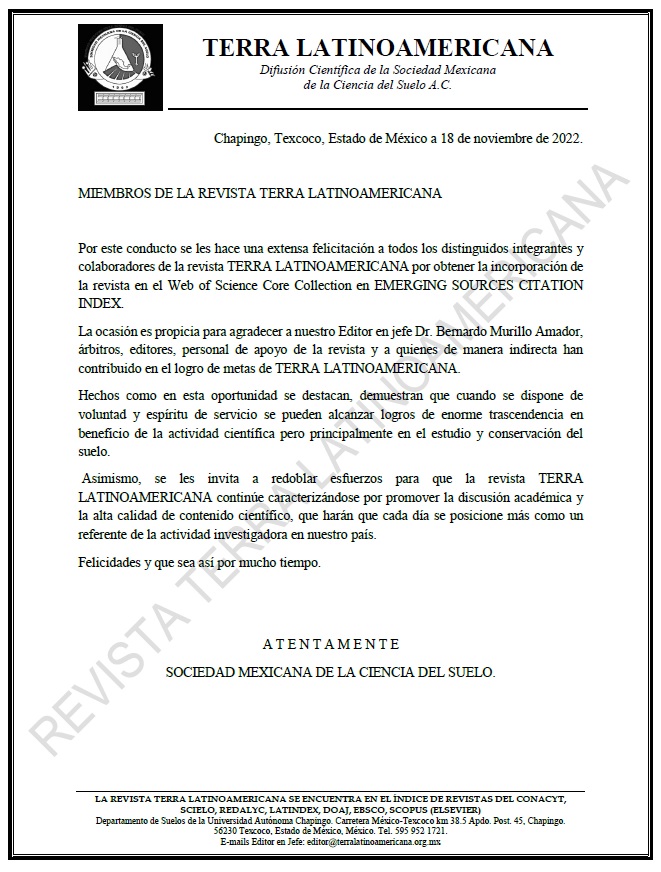Evaluation of Soil Quality in Municipalities Belonging to the Central Depression of Chiapas, Mexico
DOI:
https://doi.org/10.28940/terra.v42i0.1730Keywords:
degradation, ecosystem, sustainabilityAbstract
The state of Chiapas presents degradation processes of dif ferent kinds, as a consequence of the current established agricultural model. It is estimated that, in the near future, the surface of the state of Chiapas will present more than 55% degradation, generating changes in the physical, chemical and biological properties of the soil, af fecting the quality of life of human beings, mainly due to scarcity of food. The objective of this research was to evaluate the quality of the soils in three municipalities of the central depression of Chiapas, Mexico. The analysis were interpreted taking NOM-021-SEMARNAT-2000 as a reference and were classified according to the world reference base (WRB), version 2014. For the evaluation of soil quality, the sustainable use of land subindex (SUSS). 144 soil samples corresponding to 21 profiles were analyzed. Of the 21 profiles studied, 17 present poor soil qualities, two a sensitive quality, one acceptable quality and one with good quality. Only two soil groups presented good fertility and are classified as Vertisols and Phaeozems, which present good quality and capacity to maintain sustainable agricultural production in this region.
Downloads
Publication Facts
Reviewer profiles N/A
Author statements
- Academic society
- Terra Latinoamericana
- Publisher
- Mexican Society of Soil Science, C.A.

















